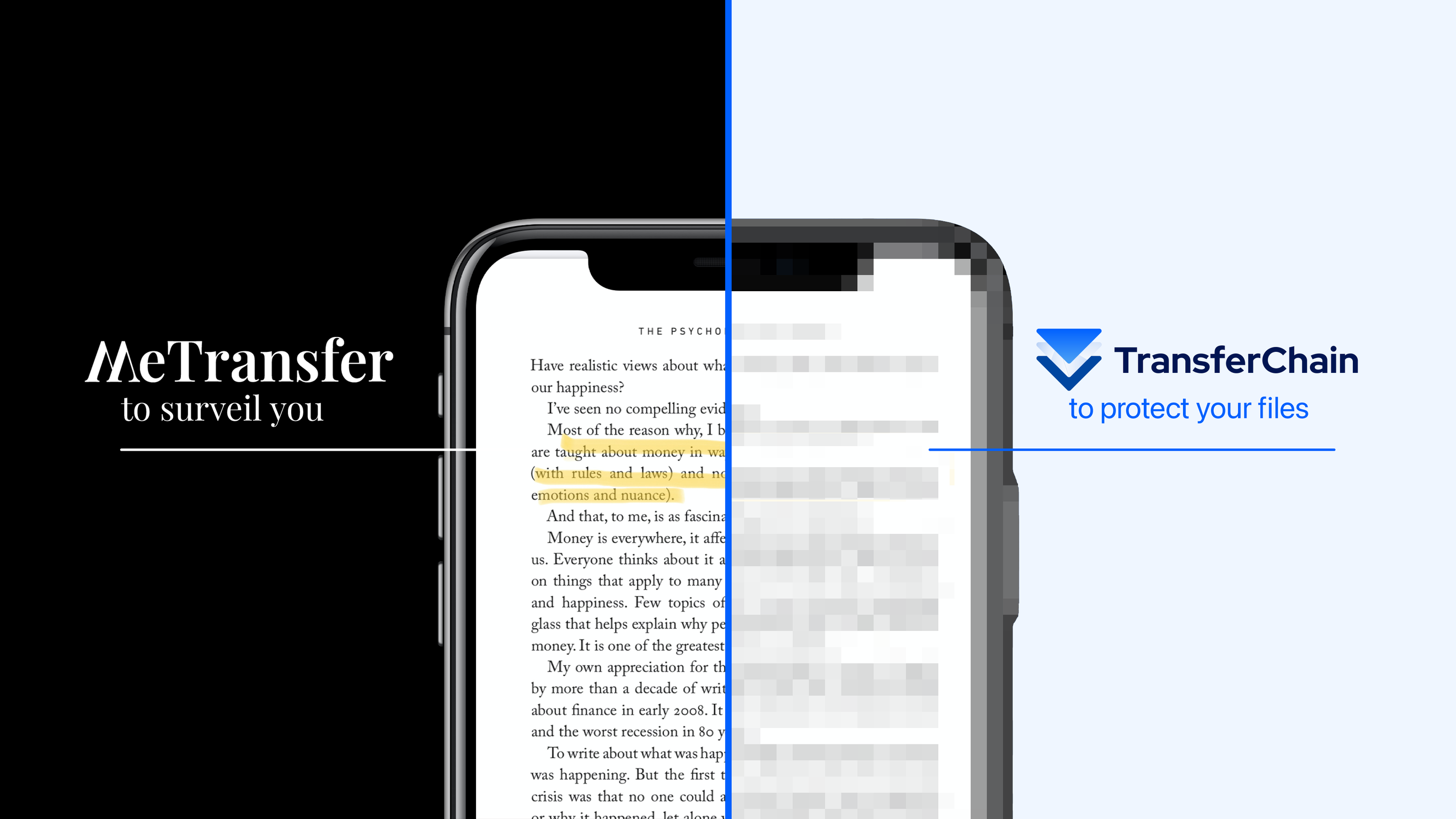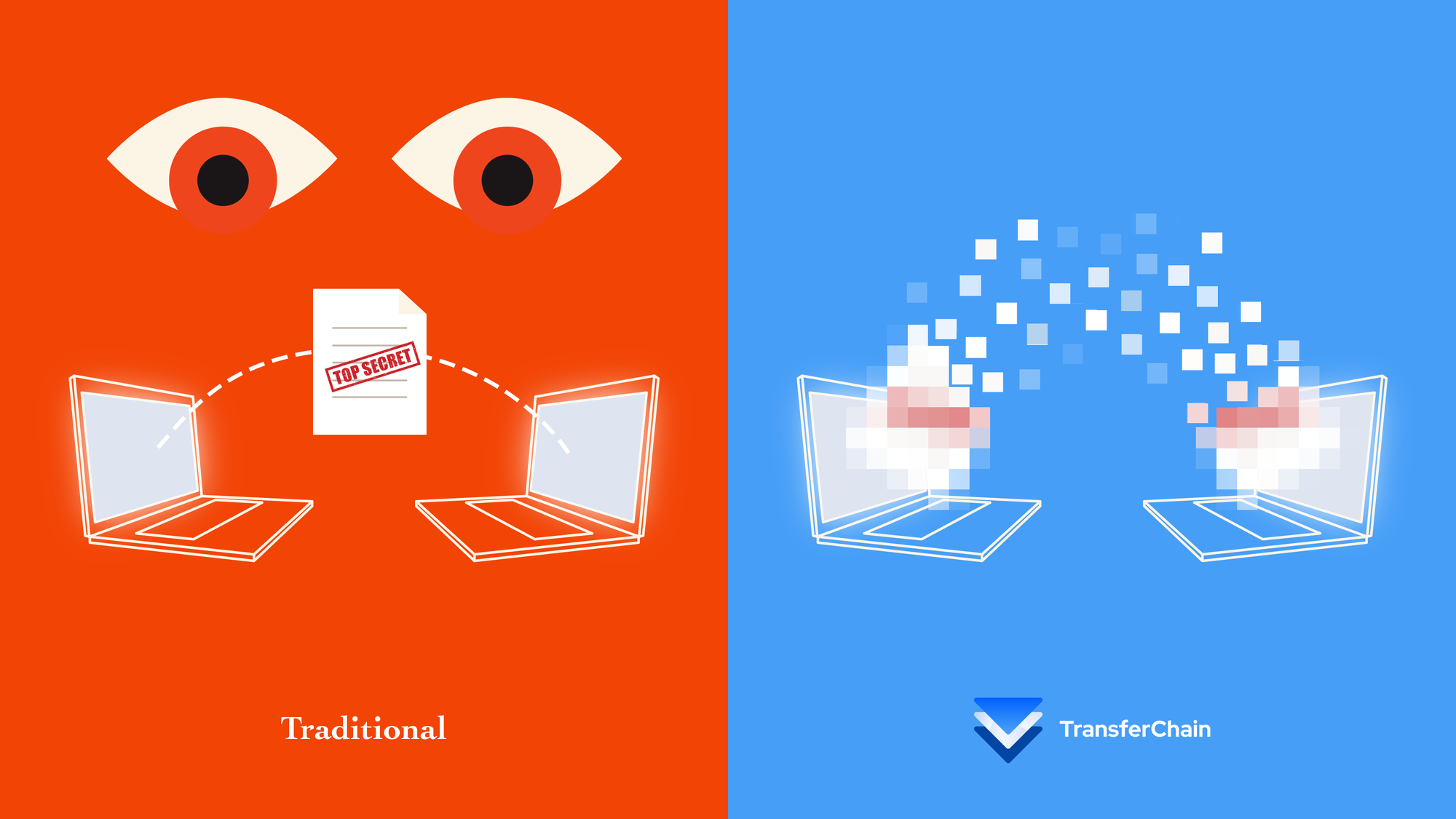
Why WeTransfer’s Latest Terms Are a Privacy Breach in Disguise
Did You Just Sign Away Your Work?
For years, WeTransfer has promised a frictionless way to share large files. But buried in their [terms of service](https://wetransfer.com/explore/legal/terms)—effective August 8th—is a seismic shift that redefines what happens to your data the second you hit “send.” Suppose you’re a creator, professional, or business relying on WeTransfer. In that case, it’s time to look beyond convenience and understand what their updated Section 6 on “Content” actually means for your privacy, your rights, and your control.
Beneath the Surface: The True Meaning of Section 6
Section 6 is the heart of the matter. It outlines how WeTransfer handles any file or data (“Content”) you upload or send using their service. At first blush, it sounds reassuring:
> “We do not claim any ownership rights to the Content. You or your licensors own and retain all right, title, and interest...”
Looks good, right? You stay the owner—or so it seems.
But read further:
> “By uploading Content, you hereby grant us a perpetual, worldwide, non-exclusive, royalty-free, transferable, sub-licensable license to use your Content to operate, develop, commercialize, and improve the Service or new technologies or services…”
Let’s translate that:
- Perpetual: This license never expires.
- Worldwide, transferable, sub-licensable: WeTransfer can share, sell, or pass along your rights to anyone, anywhere, for any reason.
- Royalty-free: You’ll receive no compensation—ever.
- Commercialization, new technologies: Your files may be used to build future products, including training AI or other revenue-generating activities.
So while you technically “own” your files, WeTransfer gains all the rights to use, adapt, and even profit from them indefinitely—without further notice, permission, or payment to you. Continued use = agreeing to these conditions.
Why This Is Not a Routine “Update”—But a Major Privacy Breach
Many platforms require basic rights to operate, but WeTransfer’s approach is unusually sweeping:
- You cannot restrict or revoke their rights once you upload.
- The license applies even to content meant for specific recipients or private transfers.
- “Personal data” may nominally be covered by the privacy policy, but the legal license over your files is separate—and binding.
Bottom line: By using WeTransfer after August 8th, you’re voluntarily handing over deep, long-lasting rights to your data. This isn’t improving convenience—it’s a huge overreach into your intellectual property and privacy.

Real-World Implications: What Does This Mean for You?
To truly grasp the seriousness, let’s step into some everyday scenarios from both individual (B2C) and business (B2B) perspectives that illustrate the risks:
B2C (Individual/N2C) User Cases
1. The Photographer’s Dilemma
You’re a freelance photographer who has created a stunning collection of images for a client. You send those high-resolution photos without a second thought. But under the new terms, your work doesn’t just pass through WeTransfer—it effectively grants them the right to use, modify, and even commercialize your photos indefinitely, without notifying or paying you. You hold the “title” on paper, but have lost control over your creative property.
2. Independent Musician: Loss of Creative Control
You’re an independent musician sharing unreleased demo tracks with collaborators. As soon as you upload them to WeTransfer, the company gains sweeping rights that could allow your demos to be used publicly, commercially, or as training data for AI—without consent or compensation. What was private creative collaboration now risks becoming uncontrolled public content.
3. Graphic Designer: Portfolio No Longer Private
As a graphic designer, you share drafts and client concepts through WeTransfer. The new terms mean your work can be reproduced or repurposed by WeTransfer or their partners—even if you intended the files only for private viewing. This threatens your ownership and risks premature exposure of unfinished or confidential material.
B2B (Business/Enterprise) User Cases
1. Corporate Confidentiality Broken
Your company transfers sensitive contracts or trade secrets with partners using WeTransfer. The moment files are uploaded, you grant broad license rights to WeTransfer, allowing them to store, adapt, sublicense, or commercialize your confidential data. No practical restrictions exist to prevent misuse or unauthorized distribution.
2. Legal Firm: Sensitive Case Files Exposed
A law firm sends sensitive legal documents through WeTransfer. Those files become subject to a license that allows WeTransfer to reproduce or distribute them within their ecosystem or to partners. Client confidentiality and professional ethics could be compromised, causing serious legal and reputational risks.
3. Marketing Agency: Proprietary Campaign Assets at Risk
A marketing agency shares proprietary campaign materials and client data via WeTransfer to remote teams and vendors. By uploading these, the agency surrenders exclusive rights to its assets, which could be sublicensed or repurposed by WeTransfer or third parties—threatening client trust and competitive advantage.
What Makes These Terms So Dangerous?
- Invisible to Most Users: Dense legal jargon masks the full impact of giving away powerful usage rights.
- Future-Proofed (For Them, Not You): “Commercialization” and “new technologies” create open-ended rights that you cannot foresee or control.
- No Practical Opt-Out: Accept the terms to use the service—or don’t use it at all.
What Can You Do Now?
1. Rethink Your File Transfers: For sensitive or valuable files, rethink whether WeTransfer is the right platform.
2. Compare Terms: Explore other file transfer services with more user-respecting privacy and licensing policies.
3. Encrypt & Protect: Always consider encrypting your files before uploading to any third party.
4. Stay Informed: Keep an eye on terms of use and privacy policies for updates to protect your rights.
Final Thoughts
Your files are more than just data—they’re the story of your creativity, your hard work, and often your most sensitive information; your files may also include your clients’ or customers’ private data, making control and privacy even more critical. In today’s digital world, it’s only natural to expect that when you share something, you still own it and control how it’s used. Unfortunately, WeTransfer’s new terms blur that clear line, asking you to give up far more than just convenience.
If privacy and ownership matter to you, there’s a better way. Enter TransferChain —a platform built from the ground up with privacy first, using blockchain technology to secure and decentralize file transfers. Unlike traditional services that claim broad, perpetual rights over your content, TransferChain fundamentally respects user ownership, ensuring that your files remain yours alone.
The tech difference: TransferChain leverages blockchain’s immutable ledger and cryptographic guarantees to provide transparency and control without sacrificing ease of use. No more hidden licenses or ambiguous terms—your files are encrypted, traceable, and only accessible to the people you authorize.
The fundamental difference: Rather than shifting power toward a central company, TransferChain empowers users with decentralization, eliminating single points of failure and corporate overreach.
The philosophical difference: It’s about trust built on technology, not legal fine print. It prioritizes your rights and privacy as an inseparable part of the service, not an afterthought.
In a world where convenience often competes with control, choosing platforms like TransferChain means choosing to protect what’s truly yours. Before your next file transfer, ask yourself—not just “Is it easy?” but “Is it mine?”
Secure your privacy today and regain control of your digital files—before it's too late!
Frequently Asked Questions (FAQs)
Do I still own the files I upload to WeTransfer?
Technically, yes—you retain copyright and legal ownership. However, under Section 6 of their new terms, WeTransfer gains a broad, perpetual license to use, adapt, and even commercialize your files without asking for permission or providing compensation.
What can I do to protect my files and rights?
- Avoid uploading sensitive or valuable content to WeTransfer
- Use alternatives with stronger user protections (e.g., TransferChain, which uses blockchain to preserve ownership and privacy)
- Encrypt your files before sending via any third-party service
- Regularly review Terms of Service for updates that may affect your rights
Does this apply even to private or confidential files?
Yes. Even if your files are private, time-sensitive, or meant for specific recipients, WeTransfer still receives the same sweeping rights under the updated terms. Confidentiality is not protected by default.


